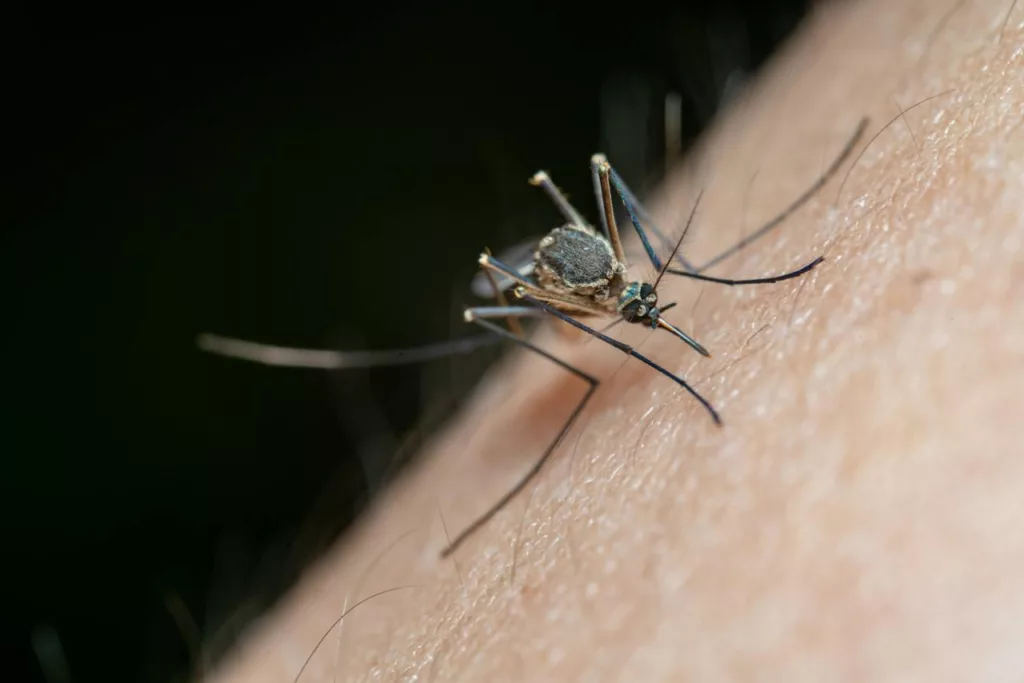Traveling soon? You might be wondering – what are the risks of contracting Malaria on my trip?
Keep in mind, this disease carries varying risks depending on:
- Your travel destination
- The time of year
- Additional precautions you take
Understanding the odds of contracting malaria is essential for travelers in regions where the disease is prevalent – especially in tropical and subtropical areas like Africa, South Asia, and Central/South America.
Each country has its own risk profile – visit our Health Hub to select your country and get recommended guidance.
Understanding Malaria Odds
The likelihood of contracting malaria is not uniform across the globe. Certain regions, particularly those with warm and humid climates, present a higher risk.
In fact, malaria transmission occurs across 87 countries and territories.
Within these areas, factors such as local conditions, altitude, and seasonal variations influence the prevalence of malaria:
- Geographical Location: The risk of malaria varies by country and even within different areas of a country, due to varying climate and terrain factors.
- Seasonal Variation: Malaria transmission tends to increase during the rainy season, when mosquito breeding is more prolific.
- Altitude: Generally, malaria risk decreases with higher altitudes, though cases can still occur in some mountainous areas.
Malarone and Malaria Prevention
The Role of Medications
Antimalarials, such as Malarone, play a crucial role in preventing malaria for those heading to endemic areas.
Antimalarials work by preventing the malaria parasite from multiplying in the body, providing a crucial defense against infection.
Effectiveness
Certain medications like Malarone are highly effective against the malaria parasite – and are often prescribed due to its broad-spectrum coverage (with relatively low side effects).
Plus, there are telehealth options that can lower the cost of Malarone. – compared to ordinary travel clinics and primary care.
Malarone disrupts the life cycle of the malaria parasite, inhibiting its ability to infect and replicate within the human body.
Proactive Protection
Antimalarials are a proactive measure, providing an additional layer of defense against potential exposure.
These medications offer travelers peace of mind – reducing the anxiety associated with the risk of contracting malaria.
Ease of Use
Malarone is favored for its simplicity, often requiring just a once-daily dose (making it a convenient option for travelers).
The ease of use increases medication adherence, ensuring travelers can consistently protect themselves throughout their stay in malaria-endemic regions.
Why Doctors Recommend Preventive Antimalarials
Professional Guidance
Consulting with a doctor is paramount for personalized advice and risk assessment.
Doctors consider your travel destination, medical history, and individual factors to provide recommendations aligned with your needs.
Risk Assessment: A healthcare professional can assess the risk of malaria exposure, tailoring recommendations to ensure you have effective prevention.
Final Thoughts on The Odds of Contracting Malaria
Remember – the risk of contracting this disease is influenced by various factors.
Taking preventive measures, including antimalarials like Malarone, is essential for reducing the risk.
Consult with a travel physician here to ensure personalized advice based on your specific circumstances, promoting a safer travel experience.
Additional FAQs about Malaria
Is Malaria Risk Uniform Everywhere?
No – certain areas have higher risk profiles, along with varying strains of the malaria parasite. On top of that, each antimalarial medication has varying levels of effectiveness against each strain.
Can I Rely Solely on Antimalarials for Protection?
While antimalarials offer significant protection, combining them with other preventive measures, such as mosquito bite prevention, enhances overall efficacy.
Are Antimalarials Safe for Everyone?
For most people, yes. However, you need to consult with a doctor to ensure you receive a prescription that aligns with your health profile.
Remember, informed decision-making and proactive prevention are key when it comes to malaria and travel safety. Safe travels!
Get Anti-Malarial Prescription →

